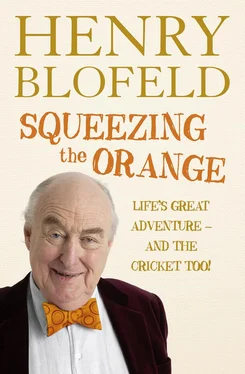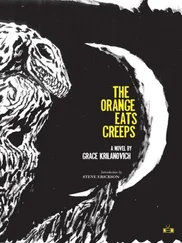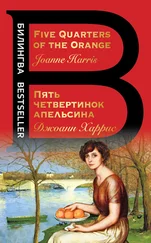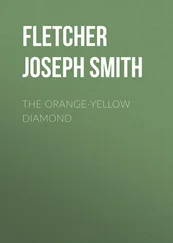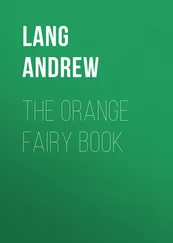Hoveton was captained by the ever-thoughtful opening batsman Neville Yallop, whose black hair was swept back with the help of Brylcreem. There was Fred Roy, of the huge eponymous village store, who opened the batting with Neville and bowled slow, non-turning off-breaks; Arthur Tink, whose military-medium was full of unsuspected guile – as I dare say was his gypsy-like wife, Mona, who looked incredibly beautiful and never said anything. The vibrantly moustached, ample-figured Colonel Ingram-Johnson kept wicket and batted in an Incogniti cap. He had Indian Army and Rawalpindi coming out of every aperture. Colin Parker, a local boy who bowled at a nippy medium pace, had an attractive, befreckled red-haired sister and a father who umpired in partnership, I am sure, with the ubiquitous gamekeeping Carter. Bob Cork, a small man who I think was a blacksmith, ran around with terrific enthusiasm, but not a great deal of effect. When I was about thirteen and had been allowed to join in a fielding practice, I tried to take a high catch and the ball dislocated my right thumb. Bob was quickly to the rescue, and agonisingly yanked the wretched joint back into place.
I lived for cricket, in boys’ matches, on our ground at home, and at Lakenham, and spent many of my waking hours in the summer holidays at one or other of the three. Added to which, and to Nanny’s mild disapproval, I took my bat to bed with me. That, of course, was in the days when bats smelled redolently of linseed oil. I am not sure I have ever found a better smell to go to sleep with.
In the winter holidays the gamekeepers and shooting took over from cricket, and I have to confess I also took my gun to bed with me. I spent as much time as I could with Carter, Watker or Godfrey learning about trapping vermin, feeding pheasants and partridges, and looking for their nests in the Easter holidays. If a nest was in an especially vulnerable position we would pick up the eggs, which would then be hatched by a broody hen, and the chicks brought up in pens until they were ready to be put back into the wild. Carrion crows, sparrowhawks, jays, magpies, stoats, rabbits and rats all had to be eliminated where possible, and kept in proportion if not. I learned many of the tricks of the trade. What fun it was, and I was unable to put down a book my father gave me called Peter Penniless, which was about the adventures of a country boy who scraped a living by poaching and selling the fruits of his labours. Poaching was something that went on a good deal, and as I was later to learn, was perpetrated not only by the unscrupulous from neighbouring villages and Norwich, but by some, like Lennie Hubbard, as we have seen, who worked, above all suspicion, on the farm. Sometimes the ungodly would be caught and brought to justice, but more often than not they got away with it. It was all part of the excitement of growing up among the Norfolk Broads. There were poachers on the Broads too, who tried to shoot duck and to catch fish and eels. Johnson was the head marshman, and another heroic figure. One of his sons was in the RAF in the war, and once came back on leave bringing with him the first banana I had ever seen, let alone tasted. It was black and well on the way to being rotten, and tasted filthy – not that I was about to admit it.
It was from this background that I once again jumped into the back of my father’s car, which had moved up a peg or two from the Armstrong Siddeley that had first taken me to Sunningdale. It was in the old 1932 Rolls that we made the journey from Hoveton to Eton on 23 September 1952 – which was not exactly the way I wanted to spend my thirteenth birthday. It was another anxious trip. I had long looked forward to going to Eton, but now that the day had arrived, I was more than a touch nervous. Twelve hundred boys, tailcoats, strange white bow ties which had to be tied with the help of a paperclip, my own room, a house of forty boys, a completely new set of rules and regulations to learn. I would have a much greater degree of freedom than I had experienced at Sunningdale, where obviously the young boys had to be kept under close and watchful guidance. Eton was a huge step nearer to the big wide world, and was both frightening and exciting because of it. ‘There will be plenty of other new boys,’ Grizel had said to me in a voice which suggested that that put the argument to bed once and for all.
After a journey of about four hours, not particularly helped by Grizel trying to jolly me along in between spirited bouts of backseat driving, we all trooped in through the front door of Common Lane House and shook hands with M’Tutor and Mrs M’Tutor, as they were known in the Eton vernacular, Geoffrey and Janet Nickson. Geoffrey Nickson was bald and quite small, with a beaming smile, a warm handshake, twinkling eyes and a chuckling laugh, all of which made that first frightening step so much easier than it had been at Sunningdale. He could have taught Mr Fox a thing or two, but then I was five years older, and better able to cope.
As I sat on the ottoman in my own room at Eton, with its lift-up bed hidden behind curtains, my own friendly shooting prints on the wall – I still have them today in my bedroom – and a few family photographs, I was acutely conscious that I was now on my own, in a much more grown-up society. It was a help to know that my brother John had been through it before me, in the same house, and had survived. All the new boys were in the same boat, but at that moment it was a personal, not a communal thing. When we arrived we were all tremulous little islands in a rough sea. I had had many lessons at home on how to put on a stiff collar, how to use collar studs and how to tie that alarming white bow tie – alarming until you had done it once, after which it was simple, as many apparently difficult things turn out to be. There was an official form of ‘cheating’, in that the white strip of the tie had a hole in the middle, through which you put the collar stud between the two ends of the stiff collar. One end of the tie was then held sideways across the collar, while the other was tucked over the top by your Adam’s apple, and then thrust down inside the shirt, where it was held in position by the paperclip. This was the ‘cheating’ bit. The two ends were then pushed under each side of the collar – simple really – then it was nervously down to breakfast, my first outing in my tailcoat. I had well and truly begun my first half at Eton.
We new boys sat at a small table in the corner at one end of the boys’ dining room, which had the somewhat mixed benefit of being presided over by ‘My Dame’ (M’Dame), who was a sort of high-falutin’ house matron. She was called Miss Pearson, and while I must say I never found her particularly loveable, it was a less aggressive sort of unloveableness than Miss Paterson’s. I suppose M’Dame had to be bossy, but she made rather a business of it. When I came down, extremely frightened, to that first breakfast I found myself being stared at by those who were not new boys in a ‘Look what the cat’s brought in’ sort of way.
I was lucky with my housemaster, M’Tutor. Geoffrey Nickson had all the qualities of a perfect schoolmaster. He was kind; he was thoughtful; he was never in a hurry; he never panicked; he never shouted; he was unfailingly interested in everything you did; he suggested, firmly at times, rather than ordered; he had a splendid sense of humour; and he punished firmly and without relish or enjoyment. At Eton, like all masters, he was known by his initials, ‘GWN’. The ‘W’ stood for Wigley, which was harmless enough, but gave rise to a certain amount of childish amusement. GWN was a classical scholar. He was not an Etonian himself, but you would never have guessed it. I arrived at Eton near the end of his fifteen-year spell as a housemaster, which finished at the end of the summer half in 1955. I don’t think it would have been possible not to love GWN. He was always immensely approachable – a schoolmaster, and yet very much not a schoolmaster. He had a wonderfully ready, infectious and enthusiastic smile. He was always fun, whether you were a member of the library, the elite five at the top of the house, who sat at his end of the long dining-room table, or a lower boy, as we all were for at least three halves, whom he took for pupil room, known colloquially as ‘P-hole’, at the end of formal lessons each morning in the mildly improvised classroom outside his study. He was equally enthusiastic whether bowling his leg-tweakers in the nets or watching members of his house in whatever sporting contest they were competing in against other houses. A perfect illustration of GWN’s skill as a schoolmaster came when he caught four of my friends playing bridge – cards were strictly illegal. He made them all write a Georgic which entailed copying out more than five hundred lines of Latin verse. He then asked them down to his study every Sunday afternoon to teach them to become better bridge players.
Читать дальше
